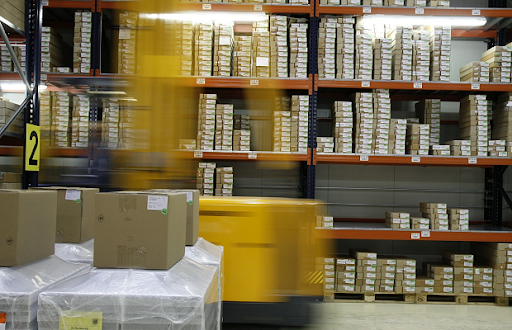Millennials have become online “super buyers” during the COVID-19 lockdown and are receiving an average of 50 per cent more deliveries every week than the over-55 “baby boomer” generation, a new survey of 2,000 consumers has revealed.
Despite being vocal supporters of environmental sustainability, millennials received an average of seven online deliveries a week during the lockdown, according to research carried out by Censuswide parcel locker firm InPost. In contrast, people aged 55 and over only received an average of three online deliveries a week.
The research highlighted that surprisingly, younger shoppers made far less eco-conscious decisions during lockdown than their older counterparts, perhaps the convenience of online shopping makes them far more likely to order more than one item or make more impulse purchases. Despite this, encouragingly, when asked going forward how their attitude might have changed post lockdown, the survey found 43% of millennials were more likely to consider the environmental consequences of their deliveries in the future as opposed to just 28% of 55+ year olds – and that included thinking more about the impact of more traffic on the roads, packaging and recycling consequences in buying online.
Jason Tavaria, CEO of InPost UK, commented: “Millennials have grown up in a world where everything is available at the touch of a button, and online shopping in this age group continues to increase. But this disparity in the correlation between their online shopping habits and understanding of consequence on the environment is a surprise. However, much thought has been given to the environment in recent weeks and we’re encouraged by such a large proportion (43%) who plan to make more eco-conscious delivery decisions in the future. We believe in the long term much more consumers will consider the environment more when choosing delivery options.
With locker delivery, a courier can drop 50+ parcels in one stop, versus 50 stops criss-crossing residential streets to make home deliveries. The reduced hours that vans spend on roads when making locker deliveries mean that lockers can drive up to two thirds less in CO2 emissions compared to home deliveries as well as reducing congestion and improving air quality in cities.
Tavaria continued: “As an industry we need to do more to educate consumers on the reality of their online shopping habits and the impact on air pollution. Parcel lockers can have a significant impact on carbon emissions and are ideal for savvy online shoppers looking for both an environmentally-friendly and convenient delivery option when buying online.”
About the research:
For this research, InPost conducted an independent survey via Censuswide of 2,000 UK household shopping decision makers aged 18+ (from a nationally represented sample) in June 2020.

